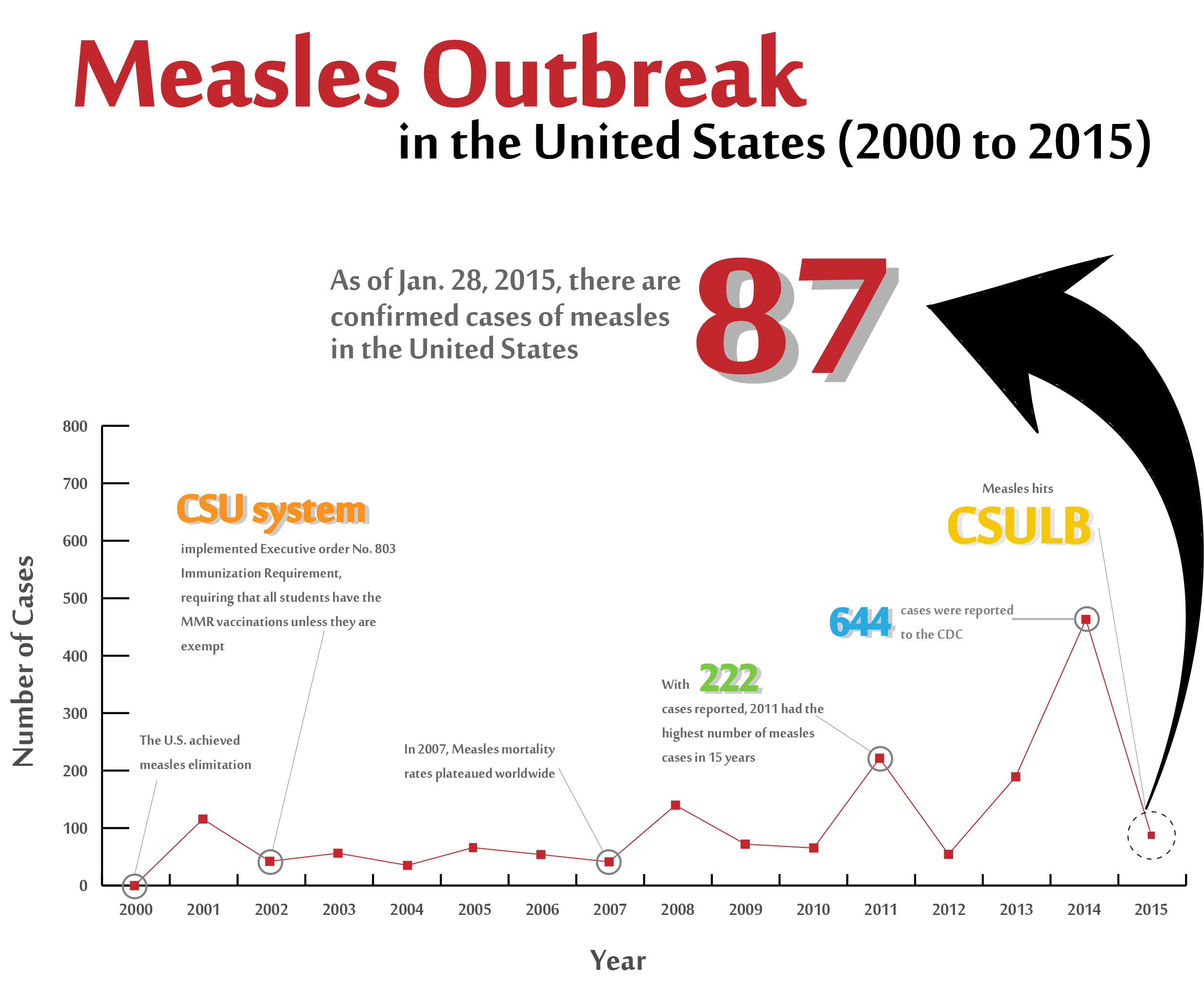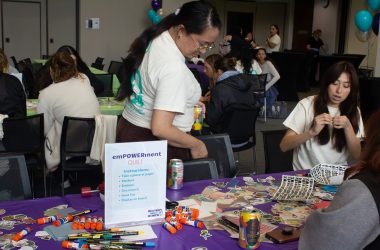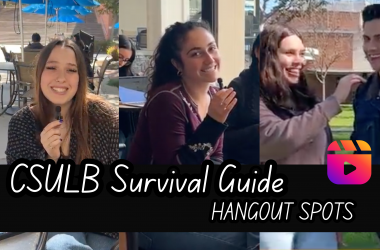Amid the recent, statewide measles outbreak, a California State University, Long Beach student is one of two confirmed cases in the city, and both patients are in recovery.
Campus officials announced the confirmation of the student’s measles on Wednesday morning in an email that was sent to students and faculty. The email indicated that the relatively small number of people who were exposed to this student during winter break have already been informed and advised of how to respond.
CSULB requires that all students to show proof of immunization against measles. Students are allowed to opt out for religious reasons or medical conditions that prevent vaccination, as stated in the CSU Executive Order No. 803 Immunization Requirement originally implemented in 2002.
“My mom, [my] whole [life] only practiced eastern medicine, you know only take you to the western doctor for an emergency or something like that,” Branden Raulston, a senior journalism major said. “So you know she claimed that as her reason for [me] not needing immunization and [the public school system] would essentially allow [me] not to do it.”
A California outbreak of measles originating from Disneyland surfaced between Dec. 15 and Dec. 20, 2014. It spread into six other states and Mexico within the past month. The running total of reported measles cases was 87 as of Jan. 27, according the Center for Disease Control.
Dr. Michael Carbuto from CSULB SHS said he advises students to check their immunization records, and to make sure they are up to date. According to the CSULB student health services website, the university offers vaccines for $57.50. If students are unable to confirm their immunization status, blood tests that can be taken to check for immunity.
“I feel as though the campus community has received no more than a conversation piece,” Kevin Moon, a senior in Kinesiology and Fitness said. “It doesn’t seem as widespread as it appears.”
According to the CDC, measles is a viral infection that is spread through the respiratory fluids of human beings. A person is considered infectious starting from four days prior to showing symptoms. These symptoms typically begin surfacing one to two weeks after infection, and the virus can linger on surfaces and in the air for two hours after a carrier has left the area.
“Most people can just treat it at home, and a doctor can give advice as for when you can come back to school,” Dr. Carbuto said. “There’s not much you can do besides treat symptoms because it’s a virus.”
Coupled with a 90 percent infection rate in people without immunity, measles is one of the most infectious diseases known to man, according to the CDC. Initial symptoms of measles include high fevers, coughs, runny noses, and watery eyes. A spotted red rash appears at least three days after the first symptoms appear.
“[People in support of the vaccination are] blaming the outbreak on people that don’t get the vaccine,” Raulston said. “But in reality, why are [they] concerned if really only those people are going to be getting the disease?”
Individuals who believe they may have contracted measles are advised by healthcare officials from the CDC and California Department of Public Health to call their healthcare provider before visiting so that they can be treated while exposing as few people to the illness as possible.




